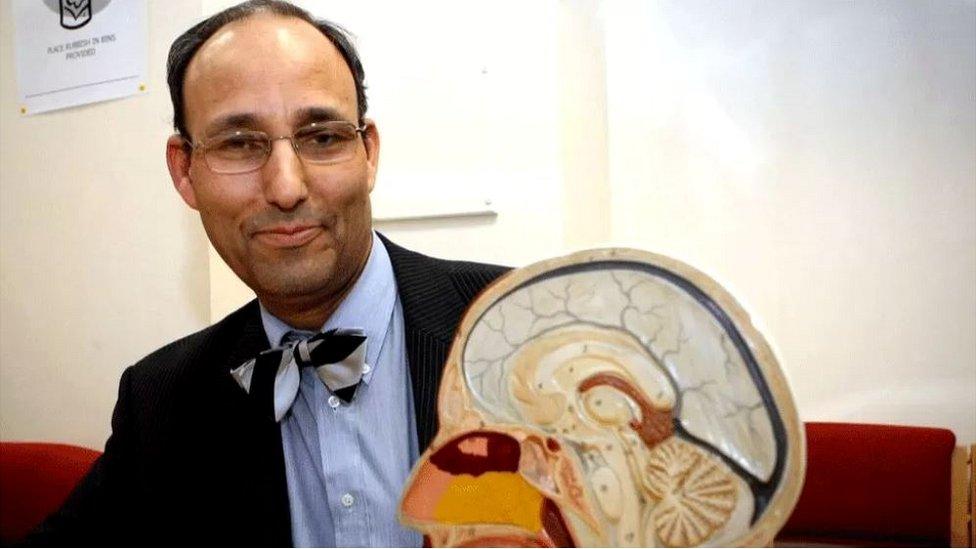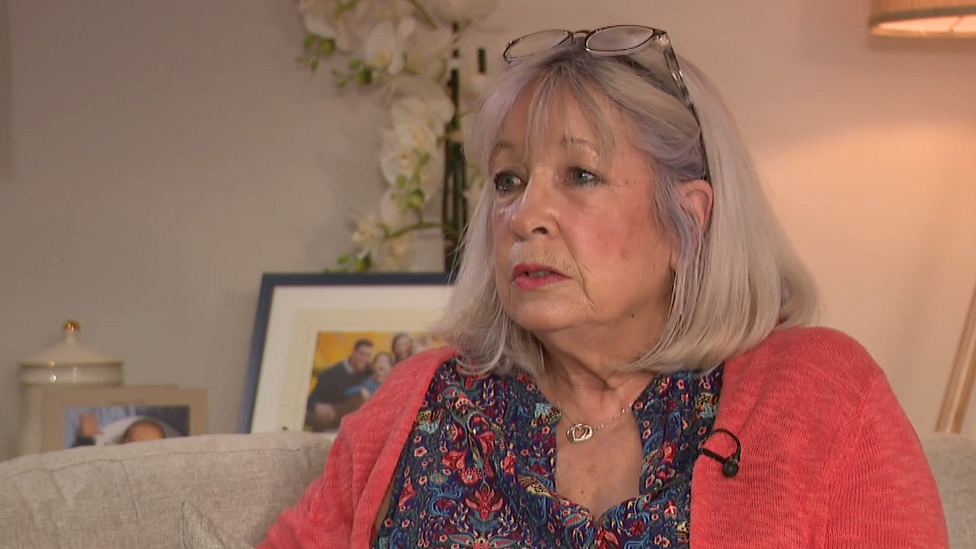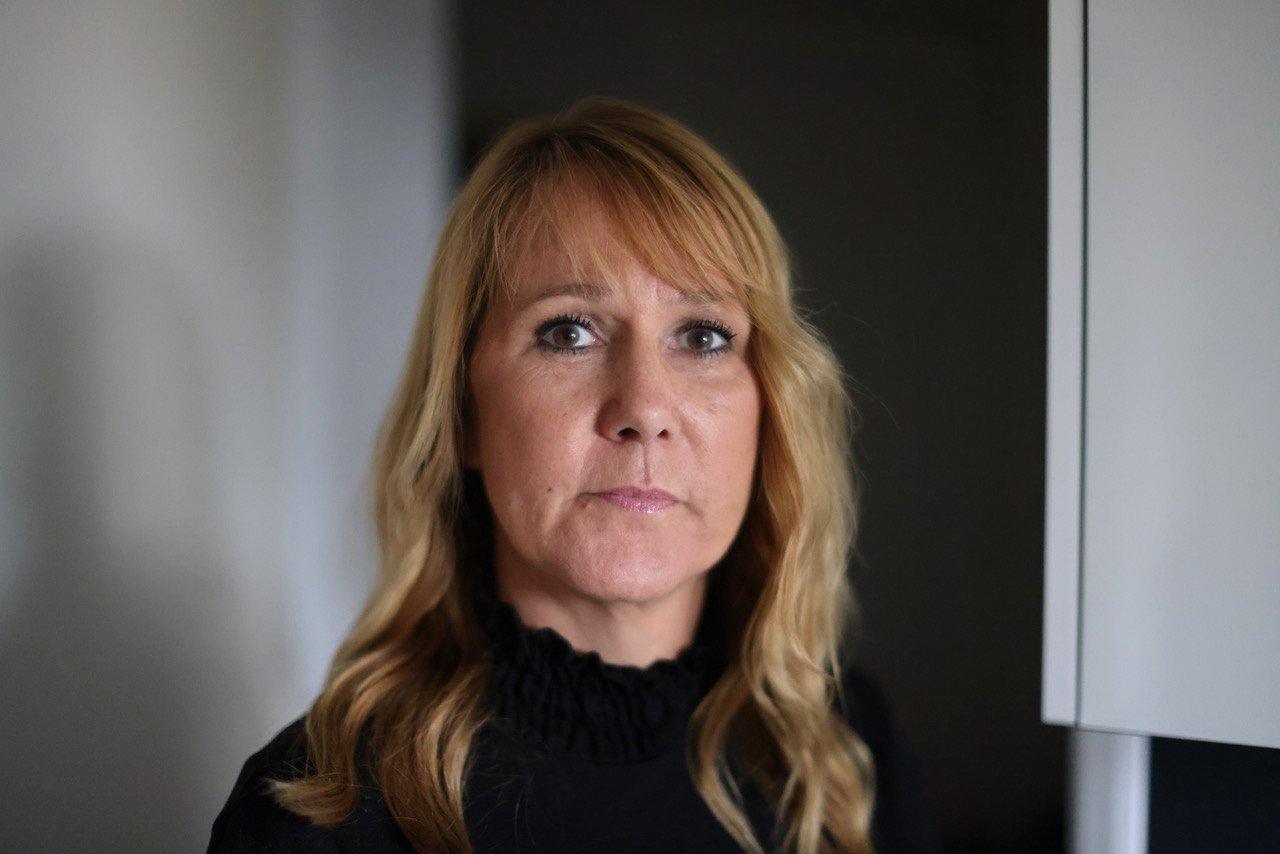Eljamel: Disgraced surgeon's patients demand public inquiry
- Published

Sam Eljamel was the head of the neurosurgery department in Ninewells Hospital in Dundee
Former patients of a disgraced Tayside surgeon are rejecting an independent review into his conduct, saying only a public inquiry will give them answers.
Prof Sam Eljamel harmed dozens of people while working as NHS Tayside's head of neurosurgery, but continued operating until 2013.
The Scottish government recently announced an independent review of the health board in relation to Eljamel.
But more than 60 of his patients said this would not go far enough.
Eljamel was allowed to continue working until he removed himself from the GMC register a decade ago.
He is currently working as a surgeon in Libya.

Fay Pelloie said complications created by her operations mean she will eventually become paralysed
Fay Pelloie from Dundee was a victim of botched spinal surgery by Eljamel, who operated on her seven times between 2003 and 2011.
She said complications created from the operations mean she will eventually become paralysed.
She said: "It's a full 360 degrees difference, my life now to my life before.
"The annoying thing is that as long as this continues, (points to head) he's up here, can't get rid of him.
"A public inquiry would help because we would have answers.
"We can then just shut him out and get on as best as we can with the life that he's left us with."
A total of 65 former patients have supported a letter to Health Secretary Michael Matheson rejecting the review and reiterating calls for a full public inquiry.
It was written by Jules Rose, who had a tear gland - instead of a tumour on her brain - removed by Eljamel.
Ms Rose said: "All they will be told is, yes we're sorry Eljamel did this to you, we fell short here.
"But what we're asking is why you fell short, why Eljamel continued to butcher patients.
"We will only achieve that through a public inquiry when it is not biased and somebody is put under oath."

Jules Rose had a tear gland instead of a tumour on her brain removed by Eljamel
Mr Matheson said his deepest sympathies went out to the affected patients.
He said: "I am considering what the best next steps would be to ensure patients and their families can have confidence that they have the answers they need on their own cases.
"I've already commissioned work to look at what we can put in place, on an independent basis, that would help to make sure that the voices of those patients are being properly listened to, and that the stories of their experience have been taken into account.
"I hope that will provide them with as much information as possible on their individual cases to try and answer the questions they have."